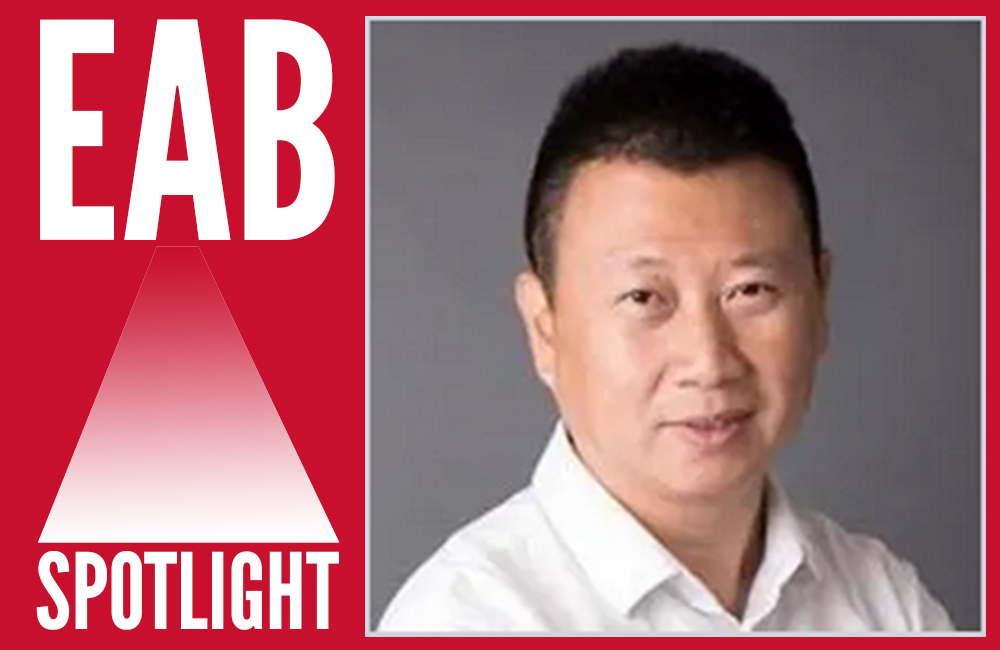Energy Advisory Board Spotlight: Haibin Xu, Shell By Angela Jardina

Since initially joining Shell as a petrophysicist in 2006, Haibin Xu has seen a multitude of transitions within energy.
Now leading an international team across six countries in his role as General Manager of Shell Research Alliance, Xu helps create strategic, inclusive and purposeful partnerships with universities, research institutes and other entities that work to meet the challenges of evolving technology in industry. With that comes the opportunity to see various international perspectives on energy.
“I get to see what the opportunities and challenges are in different countries,” Xu said. “For example in my current role, it’s very exciting to see how the U.S. energy transition pathways differ from those in the United Kingdom or in Singapore. “The one thing about energy transition is that energy solution providers must think about the customer experience. If we develop a product in the U.S., the first question we are going to get from South Asia is ‘Can that technology be directly deployed in a developing market?’ Having a global team can truly help bring diverse perspectives into the work we do.” Xu believes that the diversity of a team – across multiple dimensions that can be either visible or invisible - makes all the difference.
As the University of Houston is the second most ethnically diverse major research institute in the country – with more than half of the students being first generation, this opens the door for a more equitable society – it is no surprise that Xu, along with Shell, was intrigued to foster a partnership.
However, Xu said that is just one of three key areas that helps set UH apart as The Energy University.
When asked ‘Why UH?’, Xu also cites the city of Houston’s status as a global energy epicenter as well as the school’s significant intent behind its efforts for Houston to emerge as a driving force in industry innovation and partnerships.
“This has allowed UH to lead many initiatives around energy transition in the city,” Xu said. “The university had a deep dive into its energy research strategy and decided they would focus on hydrogen, CCUS (Carbon Capture, Utilization, and Storage), and circular plastics. UH has developed very deep expertise in those areas after only a few years. One example is the project UH and Shell are collaborating with (the United States Department of Energy) and a few other partners to build a demo unit for the next generation liquid hydrogen storage tanks.”
In his free time, Haibin maintains a blog called “Timur’s Lounge” about reflections on life, nature, and society. When asked about the intersection between the subject matter of his blog and the nature of his work, he says that it boils down to approaching each moment with full effort.
“Whether it is life or work, there is an aspect of each that is one and the same, and that is the fact that you bring the whole person to the task; It’s not just doing, but being – a process and pursuit of self-discovery and self-actualization,” Xu said.
Because of this belief, he strives to create a working environment where people want to volunteer their best effort to their work.
“It is about the meaning of their work. You cannot ask someone to volunteer their best effort if they feel their work is not worthy,” Xu said. “Another motivating factor is autonomy. I find that people will feel a lot more motivated if they are able to make decisions regarding their work. The last thing is well-rounded skills. If you create learning opportunities, people are always becoming more equipped for their job and gaining confidence through this, and achieve professional and personal growth in the job.”
As for aspiring energy Coogs who hope to be in a position such as Xu’s to make a different in the professional setting, his keys for success re two-fold: People and Purpose.
“I always say to my team ‘people first, projects next’– I must put their passion, drive, as well as their constraints as the highest priority, before thinking together on their projects,” Xu said. “To me, the single most important factor is commitment – the commitment to learn what I don’t know for my job, the commitment to overcome challenges when they arise, the commitment to follow through to reach meaningful goals, the commitment to do my best to bring people along towards an aligned vision, and ultimately the commitment to make an impact.”